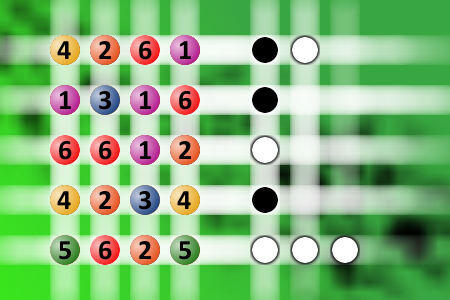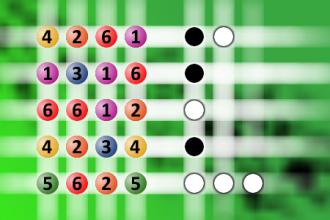What a winning combination?
The computer chose a secret code (sequence of 4 digits from 1 to 6). Your goal is to find that code. Black circles indicate the number of hits on the right spot. White circles indicate the number of hits on the wrong spot.Correct answers: 72
The first user who solved this task is Donya Sayah30.
#brainteasers #mastermind

I will seek and find You...
I will seek and find You . . I shall take you to bed and have my way with you.
I will make you ache, shake & sweat until you moan & groan.
I will make you beg for mercy, beg for me to stop.
I will exhaust you to the point that you will be relieved when I'mfinished with you.
And, when I am finished, you will be weak for days.
All my love,
The Flu
Now, get your mind out of the gutter and Go get your flu shot!
I will make you ache, shake & sweat until you moan & groan.
I will make you beg for mercy, beg for me to stop.
I will exhaust you to the point that you will be relieved when I'mfinished with you.
And, when I am finished, you will be weak for days.
All my love,
The Flu
Now, get your mind out of the gutter and Go get your flu shot!

